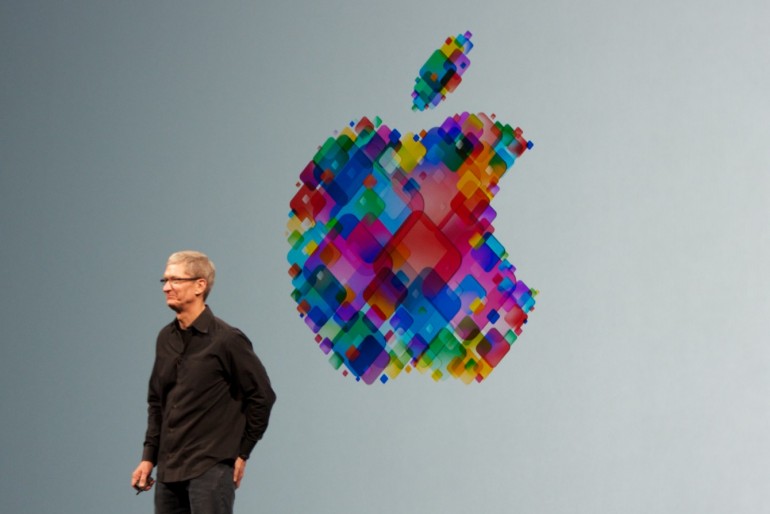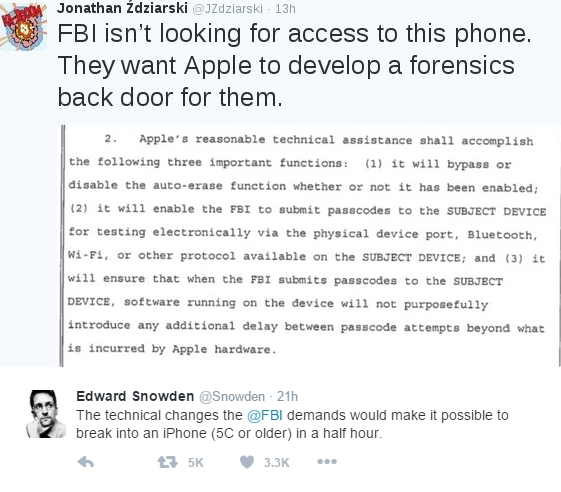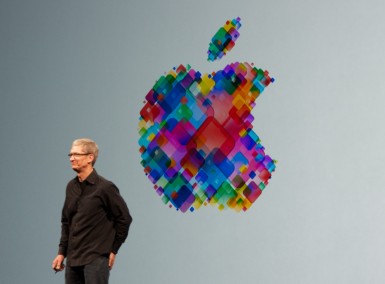
With an open letter to all Apple Customers, the company’s CEO Tim Cook refuses FBI’s order to unlock San Bernardino terrorist’s phone. The reason? Apple’s commitment to data protection and the fear of opening Pandora’s box, regarding privacy. Photo credit: Mike Deerkoski.
Apple sticks to what they promised in September 2014. After Edward Snowden leaked the information about how NSA collects personal data from the Internet activity of the US citizens, Apple changed their manufacturing game. From the iPhone 6 and on, there is no chance for NSA or FBI or CIA or whomever whom to unlock the phone without the owner’s consent. Texts, photos, emails – basically, all kinds of personal data have been encrypted by the manufacturer. In February 2016, FBI ordered Apple to unlock the phone of Syed Rizwan Farook, the one of the two culprits of the San Bernardino’s terror attack this past December that cost the life of 14 people. Apple refused to help the FBI decrypt the data and Tim Cook, Apple Inc.’s CEO, wrote an open letter to all customers and suggested that this is a topic for public discussion.
Here are some of the quotes from Tim Cook’s post on Apple’s website:
The United States government has demanded that Apple takes an unprecedented step which threatens the security of our customers. We oppose this order, which has implications far beyond the legal case at hand.
Google’s CEO Sundar Pichai, in a series of tweets, stated that he supports Tim Cook & Apple’s decision to not offer what the US Federal Bureau of Investigation is asking for. Characteristically, he said that “enabling hacking of customer devices and data could be a troubling precedent.”
For many years, we have used encryption to protect our customers’ personal data because we believe it’s the only way to keep their information safe. We have even put that data out of our own reach because we believe the contents of your iPhone are none of our business.
If anything, Apple is known for the trust relationship they built between them and their customers.

Apple says nobody can decrypt the devices from iPhone 6 and on and denies to build an iOS that can be hacked. Photo credit: Kārlis Dambrāns.
We have no sympathy for terrorists. When the FBI has requested data that’s in our possession, we have provided it.
But now the U.S. government has asked us for something we simply do not have, and something we consider too dangerous to create. They have asked us to build a backdoor to the iPhone. Specifically, the FBI wants us to make a new version of the iPhone operating system, circumventing several important security features, and install it on an iPhone recovered during the investigation. In the wrong hands, this software — which does not exist today — would have the potential to unlock any iPhone in someone’s physical possession.

Edward Snowden called it right: “This is the most important tech case in a decade.”
While we believe the FBI’s intentions are good, it would be wrong for the government to force us to build a backdoor into our products. And ultimately, we fear that this demand would undermine the very freedoms and liberty our government is meant to protect.
Read the full letter that Cook wrote here.
This is indeed a topic for public discussion. There is an ethical dilemma between security and privacy. The line between those two – unarguably – important things in life is simply too thin, but each and every person has to pick a side and have an opinion on the matter. The “data war” is a thing for a long while. Data are more important than armies and machine guns and the governments would do anything to own more information than their opponents. Will Pandora’s box open? Has it opened already? Unfortunately, all we can do is sit back and wait till the final decisions are made, whatever that means.
